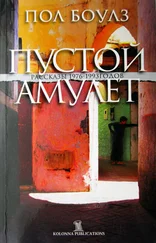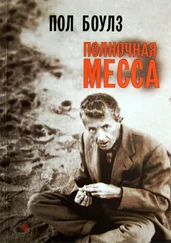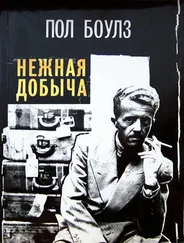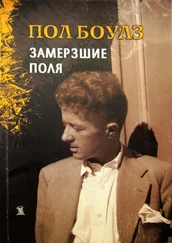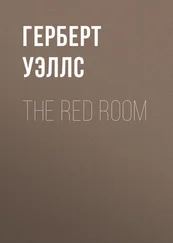Пол Боулз - In The Red Room
Здесь есть возможность читать онлайн «Пол Боулз - In The Red Room» весь текст электронной книги совершенно бесплатно (целиком полную версию без сокращений). В некоторых случаях можно слушать аудио, скачать через торрент в формате fb2 и присутствует краткое содержание. Жанр: Современная проза, на английском языке. Описание произведения, (предисловие) а так же отзывы посетителей доступны на портале библиотеки ЛибКат.
- Название:In The Red Room
- Автор:
- Жанр:
- Год:неизвестен
- ISBN:нет данных
- Рейтинг книги:5 / 5. Голосов: 1
-
Избранное:Добавить в избранное
- Отзывы:
-
Ваша оценка:
- 100
- 1
- 2
- 3
- 4
- 5
In The Red Room: краткое содержание, описание и аннотация
Предлагаем к чтению аннотацию, описание, краткое содержание или предисловие (зависит от того, что написал сам автор книги «In The Red Room»). Если вы не нашли необходимую информацию о книге — напишите в комментариях, мы постараемся отыскать её.
In The Red Room — читать онлайн бесплатно полную книгу (весь текст) целиком
Ниже представлен текст книги, разбитый по страницам. Система сохранения места последней прочитанной страницы, позволяет с удобством читать онлайн бесплатно книгу «In The Red Room», без необходимости каждый раз заново искать на чём Вы остановились. Поставьте закладку, и сможете в любой момент перейти на страницу, на которой закончили чтение.
Интервал:
Закладка:
Paul Bowles
In The Red Room
When I had a house in Sri Lanka, my parents came out one winter to see me. Originally I had felt some qualms about encouraging their visit. Any one of several things-the constant heat, the unaccustomed food and drinking water, even the presence of a leprosy clinic a quarter of a mile from the house might easily have an adverse effect on them in one way or another. But I had underestimated their resilience; they made a greater show of adaptability than I had thought possible, and seemed entirely content with everything. They claimed not to mind the lack of running water in the bathrooms, and regularly praised the curries prepared by Appuhamy, the resident cook. Both of them being in their seventies, they were not tempted by the more distant or inaccessible points of interest. It was enough for them to stay around the house reading, sleeping, taking twilight dips in the ocean, and going on short trips along the coast by hired car. If the driver stopped unexpectedly at a shrine to sacrifice a coconut, they were delighted, and if they came upon a group of elephants lumbering along the road, the car had to be parked some distance up ahead, so that they could watch them approach and file past. They had no interest in taking photographs, and this spared me what is perhaps the most taxing duty of cicerone: the repeated waits while the ritual between man and machine is observed. They were ideal guests.
Colombo, where all the people I knew lives, was less than a hundred miles away. Several times we went up for weekends, which I arranged with friends by telephone beforehand. There we had tea on the wide verandas of certain houses in Cinnamon Gardens, and sat at dinners with professors from the university, Protestant ministers, and assorted members of the government. (Many of the Sinhalese found it strange that I should call my parents by their first names, Dodd and Hannah; several of them inquired if I were actually their son or had been adopted.) These weekends in the city were hot and exhausting, and they were always happy to get back to the house, where they could change into comfortable clothing.
One Sunday not long before they were due to return to America, we decided to take in the horse races at Gintota, where there are also some botanical gardens that Hannah wanted to see. I engaged rooms at the New Oriental in Galle and we had lunch there before setting out.
As usual, the events were late in starting. It was the spectators, in any case, who were the focus of interest. The phalanx of women in their shot-silk saris moved Hannah to cries of delight. The races themselves were something of a disappointment. As we left the grounds, Dodd said with satisfaction: It'll be good to get back to the hotel and relax.
But we were going to the botanical gardens, Hannan reminded him. I'd like to have just a peek at them.
Dodd was not eager. Those places cover a lot of territory, you know, he said.
We'll look inside and come out again, she promised.
The hired car took us to the entrance. Dodd was tired, and as a result was having a certain amount of difficulty in walking. The last year or so I find my legs aren't always doing exactly what I want 'em to do, he explained.
You two amble along, Hannah told us. I'll run up ahead and find out if there's anything to see.
We stopped to look up at a clove tree; its powerful odor filled the air like a gas. When we turned to continue our walk, Hannah was no longer in sight. We went on under the high vegetation, around a curve in the path, looked ahead, and still there was no sign of her.
What does your mother think she's doing? The first thing we know she'll be lost.
She's up ahead somewhere.
Soon, at the end of a short lane overhung by twisted lianas, we saw her, partially hidden by the gesticulating figure of a Sinhalese standing next to her.
What's going on? Dodd hastened his steps. Run over there, he told me, and I started ahead, walking fast. Then I saw Hannah's animated smile, and slowed my pace. She and the young man stood in front of a huge bank of brown spider orchids.
Ah! I thought we'd lost you, I said.
Look at these orchids. Aren't they incredible?
Dodd came up, nodded at the young man, and examined the display of flowers. They look to me like skunk cabbage, he declared.
The young man broke into wild laughter. Dodd stared at him.
This young man has been telling me the history of the garden, Hannah began hurriedly. About the opposition to it, and how it finally came to be planted. It's interesting.
The Sinhalese beamed triumphantly. He wore white flannels and a crimson blazer, and his sleek black hair gave off a metallic blue glint in the sunlight.
Ordinarily I steer a determined course away from the anonymous person who tries to engage me in conversation. This time it was too late; encouraged by Hannah, the stranger strolled beside her, back to the main path. Dodd and I exchanged a glance, shrugged, and began to follow along behind.
Somewhere up at the end of the gardens a pavilion had been built under the high rain trees. It had a veranda where a few sarong- draped men reclined in long chairs. The young man stopped walking. Now I invite you to a cold ginger beer.
Oh, Hannah said, at a loss. Well, yes. That would be nice. I'd welcome a chance to sit down.
Dodd peered at his wristwatch. I'll pass up the beer, but I'll sit and watch you.
We sat and looked out at the lush greenness. The young man's conversation leapt from one subject to another; he seemed unable to follow any train of thought further than its inception. I put this down as a bad sign, and tried to tell from the inflections of Hannah's voice whether she found him as disconcerting as I did.
Dodd was not listening. He found the heat of low-country Ceylon oppressive, and it was easy to see that he was tired. Thinking I might cover up the young man's chatter, I turned to Dodd and began to talk about whatever came into my head: the resurgence of mask-making in Ambalangoda, devil-dancing, the high incidence of crime among the fishermen converted to Catholicism. Dodd listened, but did no more than move his head now and then in response.
Suddenly I heard the young man saying to Hannah: I have just the house for you. A godsend to fill your requirements. Very quiet and protected.
She laughed. Mercy, no! We're not looking for a house. We're only going to be here a few weeks more.
I looked hard at her, hoping she would take my glance as a warning against going on and mentioning the place where she was staying. The young man was not paying attention, in any case. Quite all right. You are not buying houses. But you should see this house and tell your friends. A superior investment, no doubt about that. Shall I introduce myself, please? Justus Gonzag, called Sonny by friends.
His smile, which was not a smile at all, gave me an unpleasant physical sensation.
Come anyway. A five-minute walk, guaranteed. He looked searchingly at Hannah. I intend to give you a book of poems. My own. Autographed for you with your name. That will make me very happy.
Oh, Hannan said, a note of dismay in her voice. Then she braced herself and smiled. That would be lovely. But you understand, we can't stay more than a minute.
There was a silence. Dodd inquired plaintively: Can't we go in the car, at least?
Impossible, sir. We are having a very narrow road. Car can't get through. I am arranging in a jiffy. He called out. A waiter came up, and he addressed him in Sinhalese at some length. The man nodded and went inside. Your driver is now bringing your car to this gate. Very close by.
This was going a little too far. I asked him how he though anyone was going to know which car was ours.
No problem. I was present when you were leaving the Pontiac. Your driver is called Wickramasinghe. Up-country resident, most reliable. Down here people are hopeless.
Читать дальшеИнтервал:
Закладка:
Похожие книги на «In The Red Room»
Представляем Вашему вниманию похожие книги на «In The Red Room» списком для выбора. Мы отобрали схожую по названию и смыслу литературу в надежде предоставить читателям больше вариантов отыскать новые, интересные, ещё непрочитанные произведения.
Обсуждение, отзывы о книге «In The Red Room» и просто собственные мнения читателей. Оставьте ваши комментарии, напишите, что Вы думаете о произведении, его смысле или главных героях. Укажите что конкретно понравилось, а что нет, и почему Вы так считаете.

